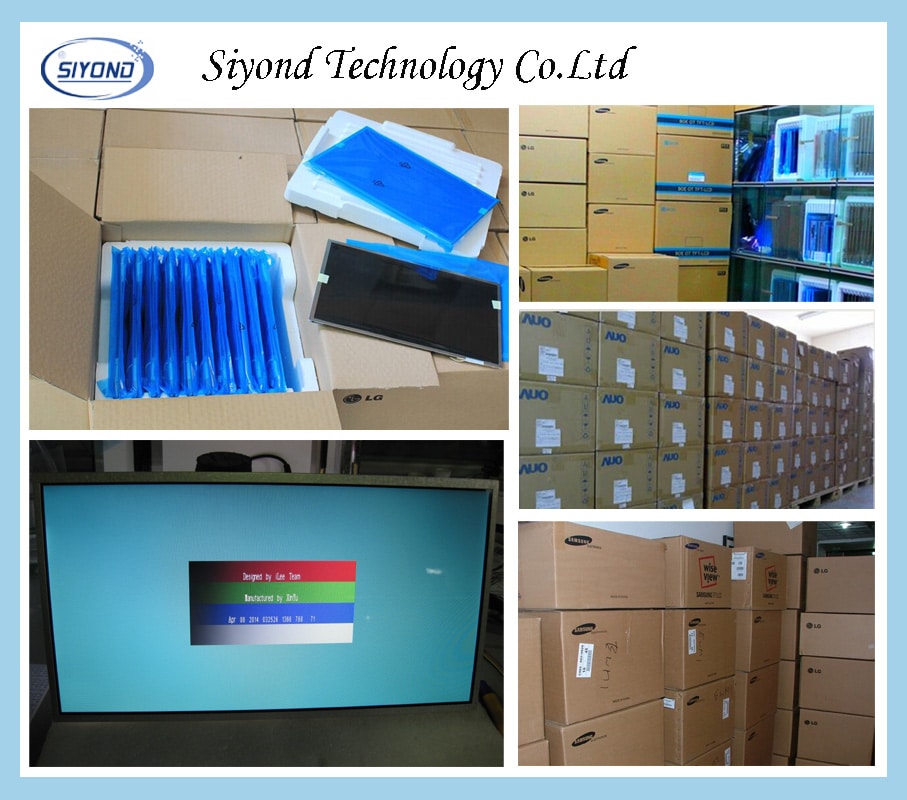How to Choose Good Quality laptop lcd screen?
I. Introduction
A. Definition of laptop lcd screen
When buying a laptop, the LCD screen is an important factor to consider. It is the part of the laptop that displays the content of the computer, so it’s important that it’s the right size and type for your needs. Here are some tips on how to choose the right laptop LCD screen:
Definition of Laptop LCD Screen
A laptop LCD screen is the monitor area of a laptop computer. It is sometimes referred to as the display panel or the liquid crystal display (LCD) panel. The LCD screen is what displays the images and text on the laptop.
Screen Size
The size of the laptop LCD screen is measured diagonally from corner to corner. Most laptop LCD screens range from 11.6 to 17.3-inches. The size of the screen will depend on how much space you have available and what type of activities you plan on doing with the laptop.
Screen Resolution
The resolution of the laptop LCD screen is measured in pixels. The higher the number of pixels, the sharper the image will appear. The most common resolution for laptop LCD screens is 1366 x 768. However, some high-end laptops have higher resolutions, such as 1920 x 1080.
Screen Type
There are two main types of laptop LCD screens: LED and IPS. LED screens are the most common type and offer good image quality. IPS screens are more expensive, but they offer better color accuracy and wider viewing angles.
Touch Screen
Some laptop LCD screens are touch screens, meaning they can recognize finger and stylus input. Touch screen laptops are becoming more popular, but they tend to be more expensive than regular laptops.
Brightness
The brightness of the laptop LCD screen is measured in candelas per square meter (cd/m2). The higher the brightness, the better the visibility will be in bright environments. If you plan on using the laptop outdoors, look for a screen that has a high brightness rating.
These are some of the most important factors to consider when choosing a laptop LCD screen. By understanding the different types of screens, you can make an informed decision and find the right laptop for your needs.
B. Reasons for choosing laptop lcd screen
When it comes to laptops, LCD screens can provide you with a great viewing experience. They are becoming more and more popular as people are looking for ways to maximize the performance of their laptop. Here are some of the main reasons why people are choosing laptop LCD screens.
One of the main advantages of a laptop LCD screen is the improved picture quality. Unlike traditional CRT monitors, LCD screens produce a much sharper image with vivid colors and high contrast. Furthermore, LCD screens are much thinner than their CRT counterparts and take up less space, allowing you to have a larger screen size without sacrificing desktop space.
Another great benefit of laptop LCD screens is their energy efficiency. LCD screens use less energy than traditional CRT monitors, allowing you to save money on your electricity bills. Additionally, LCD screens are also very durable and resistant to damage, so you can rest assured that your laptop screen will last for a long time.
Finally, laptop LCD screens are very easy to use. Most LCD screens can be adjusted to different levels of brightness and contrast to suit your individual preferences. Furthermore, laptop LCD screens are also very lightweight, making them easy to carry and store.
When it comes to laptop screens, LCD screens provide you with a great viewing experience. They provide you with improved picture quality, energy efficiency, durability, and ease of use. All of these factors make laptop LCD screens a great choice for anyone looking to maximize the performance of their laptop.
How to Choose Good Quality laptop lcd screen?
II. Factors to Consider when Choosing Laptop Lcd Screen
A. Screen Size
The size of the LCD screen is important, as it will affect the overall portability of the device. Larger screens are great for viewing movies and playing games, but they are not ideal for portability. A laptop with a smaller screen is more suitable for those who need to take their device on the go.
B. Resolution
The resolution of the LCD screen determines how sharp and clear the images and text will appear. Higher resolution screens are better for viewing graphics and text, but they also come with a higher price tag.
C. Viewing Angle: The viewing angle of the LCD screen is the degree to which the image can be viewed from the side. A wider viewing angle is better for multi-person viewing, while a narrow viewing angle is better for single-person viewing.
D. Response Time: The response time of the LCD screen is the amount of time it takes for the screen to respond to input from the user. A slower response time can lead to lag and frustration when using the laptop.
F.Brightness: The brightness of the LCD screen is important for viewing in different lighting conditions. Higher brightness settings are better for viewing in well-lit environments, while lower settings are better for viewing in dimly lit environments
III. Tips for Choosing Laptop Lcd Screen
A. Consider the Price :The price of a laptop LCD screen is another important factor to consider. Higher quality screens usually cost more but offer better image quality and viewing angles.
B. Check the Reviews
Reviews can provide insight into the performance of different types of LCD panels, as well as the overall lifespan of the display.
C. Examine the Warranty
Most laptop manufacturers provide a standard one-year warranty on the LCD screen. This warranty typically covers manufacturing defects and does not cover any damage caused by improper usage, such as dropping the laptop or using it in a hazardous environment. Some manufacturers also offer extended warranties that can provide coverage for up to two or three years.
When it comes to repair or replacement of a defective LCD screen, most manufacturers have specific procedures that must be followed in order to receive service. It is important to read the warranty closely in order to understand the specific conditions that must be met in order to receive service. In some cases, the manufacturer may require the laptop to be sent in for service or for the user to take it to an authorized repair facility.
In addition to the manufacturer’s warranty, some retailers may also offer their own warranties on laptop LCD screens. These warranties may be more comprehensive than the manufacturer’s warranty, covering a wider range of defects and damage. It is important to read the terms and conditions of the retailer’s warranty before making a purchase.
Finally, it is important to consider the cost of the warranty when deciding which laptop to purchase. Some warranties may be more expensive than others, so it is important to weigh the overall cost of the warranty against the likelihood that the LCD screen will require service.
In conclusion, it is important to understand the warranty of laptop LCD screens before making a purchase. It is important to read the manufacturer’s warranty closely in order to understand the specific terms and conditions. Additionally, some retailers may offer their own warranties that can provide more extensive coverage. Finally, it is important to consider the cost of the warranty when deciding which laptop to purchase.
How to Choose Good Quality laptop lcd screen?
IV. Conclusion
A. Summary of How to Choose laptop lcd screen
Choosing the right LCD screen for a laptop can be a daunting task. With so many types, sizes, resolutions and features to consider, it’s easy to get overwhelmed. Fortunately, there are a few key factors to consider when selecting the right laptop LCD screen for your needs.
First, consider the size of the LCD screen. Most laptops are available in sizes ranging from 11 inches to 17 inches, and the larger the screen size, the higher the resolution. The resolution is measured in pixels, and the higher the resolution, the sharper the image will be. It’s also important to consider the viewing angle of the LCD screen. The wider the viewing angle, the better able you will be to view the screen from multiple angles.
Next, consider the type of LCD screen. The most common types are TN, IPS, and VA. TN panels offer the best response time, which makes them ideal for gaming, but they also have narrow viewing angles and washed out colors. IPS panels offer superior viewing angles, but they have slower response times, so they are not ideal for gaming. VA panels are a good compromise between the two, offering good viewing angles and response time, but they can have color shifting and ghosting issues.
Finally, consider the features of the laptop LCD screen. Many laptops come with features such as anti-glare coatings, LED backlighting, and higher refresh rates. Anti-glare coatings reduce eye strain caused by reflections, LED backlighting helps to improve image quality, and higher refresh rates make for smoother visuals.
How to Choose Good Quality laptop lcd screen?
By considering all of these factors, you should be able to find the perfect laptop LCD screen for your needs. With the right screen, you can enjoy an immersive experience with vibrant visuals and superior performance.


